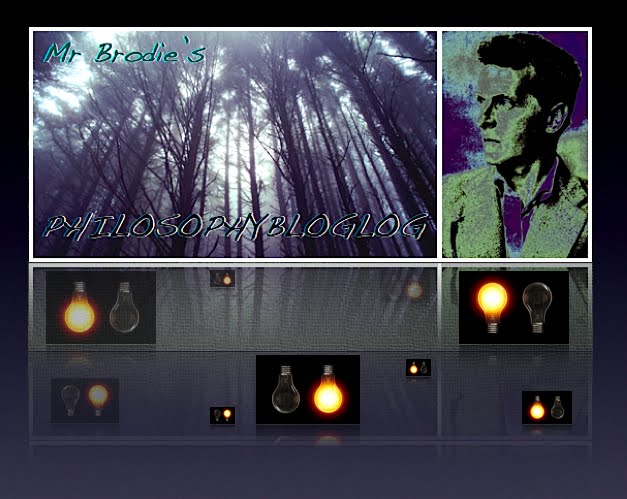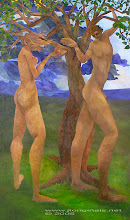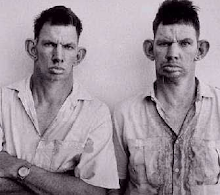HARD DETERMINISTS (obviously not as hard as Joe) & Physicalists think that free will is an illusion. They think that all the choices, decisions and actions of human beings are determined by prior physical causes. Just like the atoms that form the rest of the physical world we are subject to the forces of cause and effect, we cannot do other than what we do do: we are subject to causal necessity. We are no more in control of our lives than an autumn leaf tumbling on the wind. (Ooh, lovely image!) As Baron d’Holbach put it
“Man’s life is a line that nature commands him to describe upon the surface of the earth, without his ever being able to swerve from it, even for an instant ... he is unceasingly modified by causes, whether visible or concealed, over which he has no control, which necessarily regulate his mode of existence, give the hue to his way of thinking, and determine his manner of acting. . . . Nevertheless, in despite of the shackles by which he is bound, it is pretended he is a free agent, or that independent of the causes by which he is moved, he determines his own will, and regulates his own condition.”
The problem that this brings about is that if we are without free will, then we cannot be held responsible for our behaviour. How can we justify praising or blaming anyone for anything if they could not have done anything else. Clearly this view has profound implications for our notions of morality and justice.
OUGHT IMPLIES CAN
The whole point of morality is that it implies a choice: we can choose to do 'the right thing'. We know that we ought to do the right thing. But it make no sense to say we 'ought' to do something if we have no free will? The word 'ought' implies that we can, but we can't! See?

Free the animals.























No comments:
Post a Comment